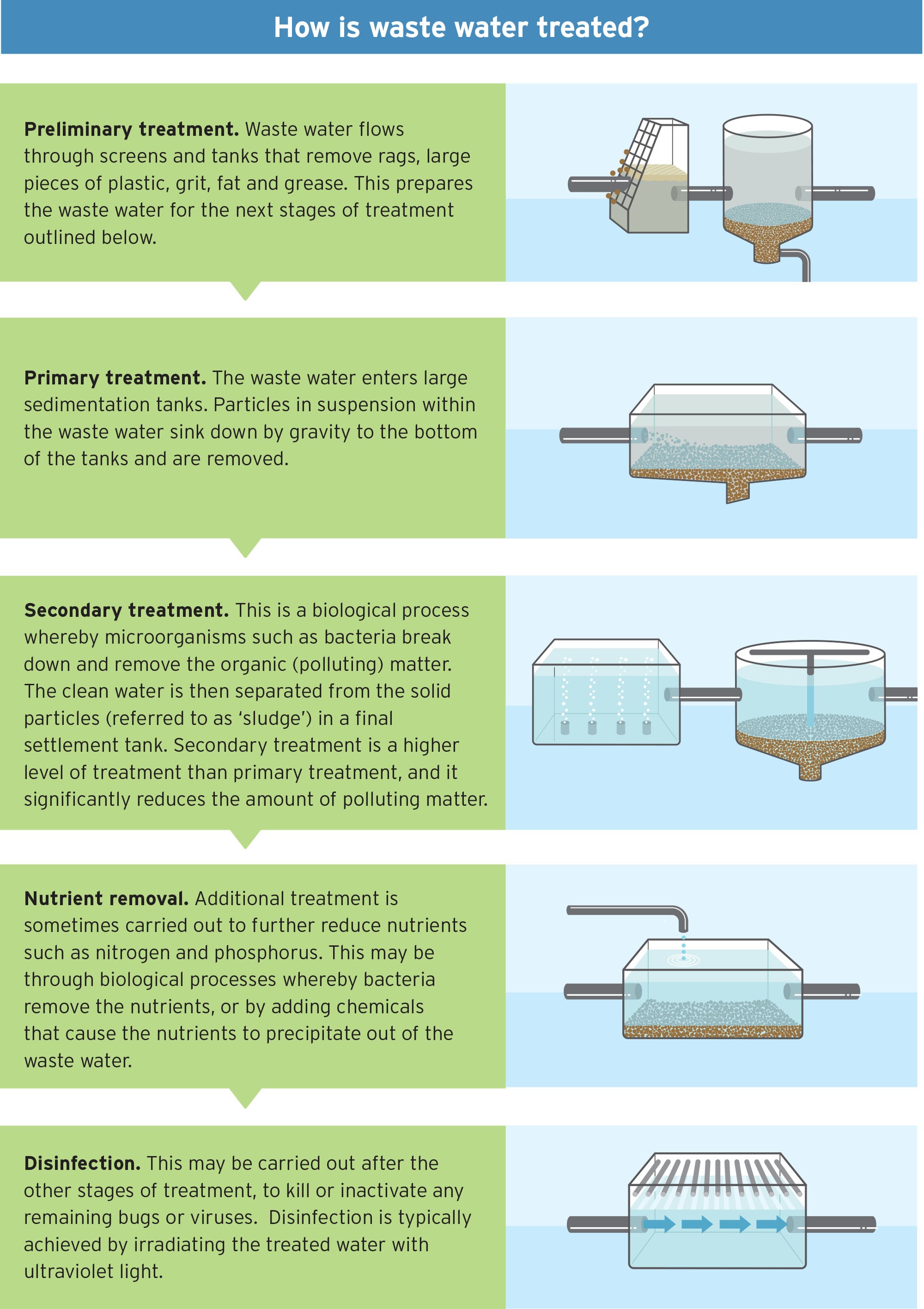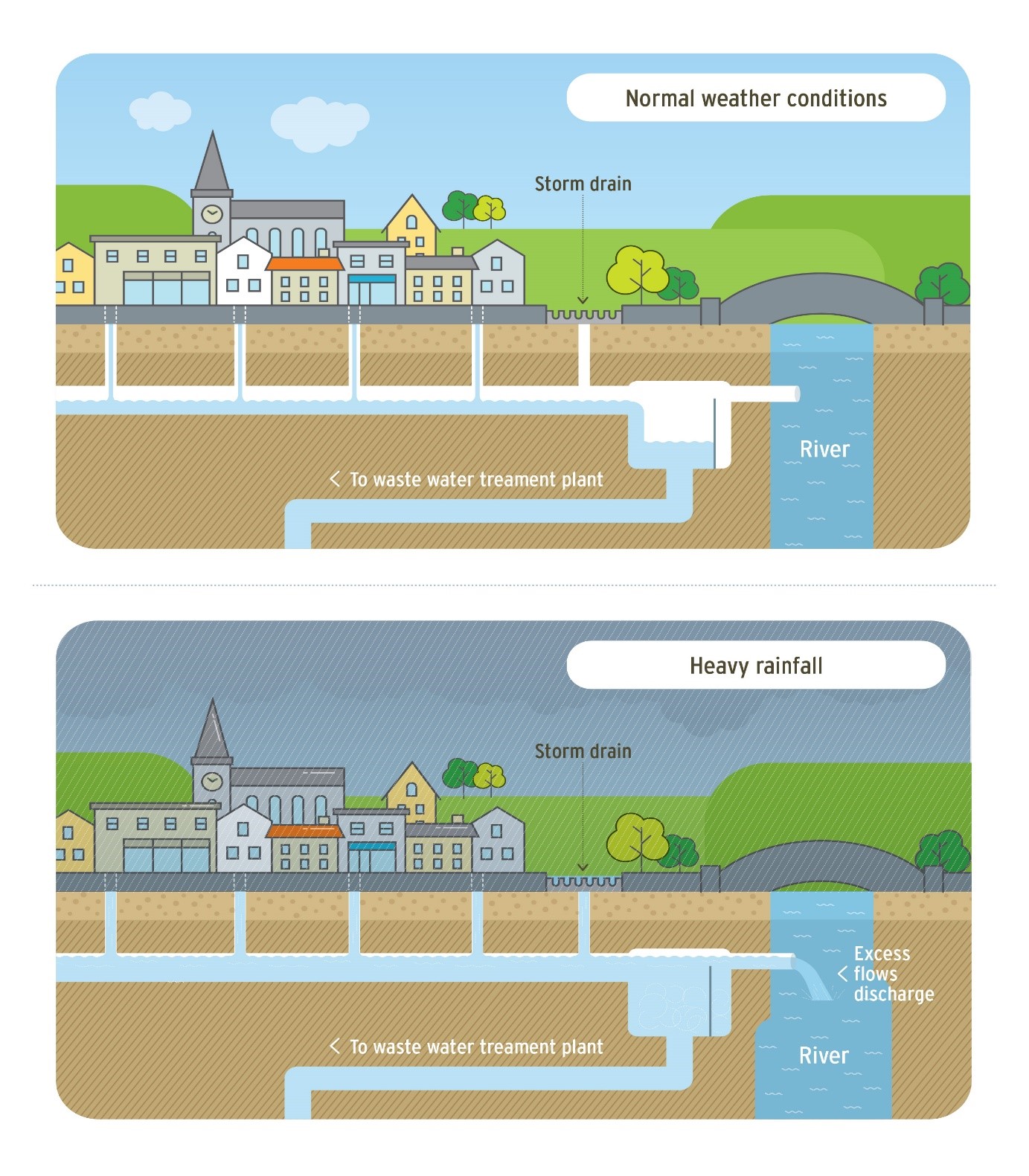Urban waste water treatment in Ireland
What happens to our waste water after it goes down the drain?
.jpg)
The objective of waste water treatment is to collect the waste water generated within communities and remove polluting material so that the treated water can be released safely back into the water environment. If waste water is not properly treated it can pollute our waters and create a public health risk.
Uisce Éireann’s job is to make sure that waste water is treated correctly to protect our environment and our health, from waste water discharges.
You can see the key environmental priorities that Irish Water need to work on by visiting the urban waste water priority areas page.
See our latest Urban Waste Water Treatment report.
Check out the EPA’s Sewage Treatment Map to find out if there is a treatment plant near you.
How is waste water treated?

In 2024 most of Ireland’s wastewater was treated at plants designed to provide secondary treatment (59.7%) or secondary treatment with nutrient removal (38.7%).
The remainder was either conveyed to plants that provide a more basic form of treatment, known as primary treatment (1%) or was collected at areas that have no treatment plant and discharged directly into the water environment without any treatment (0.6%).
Storm water overflows
Sewers carry waste water away from our homes and communities and convey it to treatment plants. Many sewers also collect rainwater runoff from impermeable surfaces such as roads. Sewers should have enough capacity to collect and retain waste water during all normal weather conditions and all normal seasonal variations in waste water load. In times of heavy rainfall, the rainwater runoff entering sewers can increase significantly. If rainfall is heavy or sustained enough the capacity of the treatment plant and sewer can be exceeded and the excess flow of waste water is released through outlets referred to as storm water overflows.
Storm water overflows act as emergency safety valves and release the excess flow from the sewer directly into local waters, such as rivers. Without these releases there could be a greater risk to the environment and people’s health because the sewer and treatment plant could become inundated, and homes and streets flooded by sewage. Storm water overflows are common in many countries and the European Union recognises it is not possible in practice to construct waste water works in such a way that all waste water can be treated during situations such as unusually heavy rainfall. Discharges from storm water overflows are diluted by rainwater but may have the potential to cause short term pollution. In order to limit pollution, storm water overflows must meet certain national standards, for example they must not operate in dry weather.
